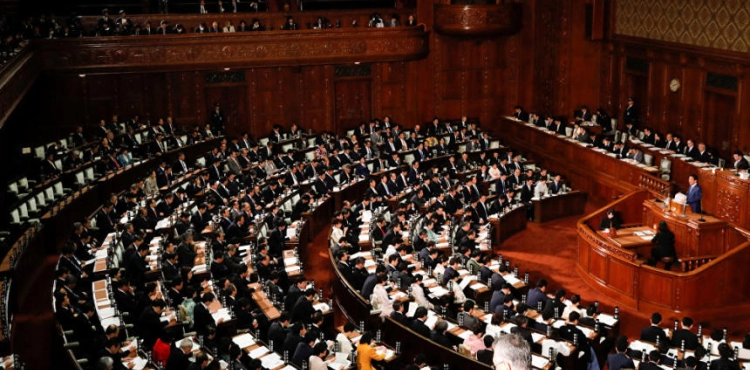Tokyo _ Agencies
The Japanese parliament on Saturday approved a bill to reform the visa regime to allow hundreds of thousands of migrant workers to enter, in an effort to address the lack of employment.
The new visa system, which is scheduled to enter into force in April, covers 14 areas of underemployment, such as construction, construction, agriculture, restaurants and care for the elderly.
Japan has traditionally been opposed to migration, not receiving any refugees, but is currently struggling to deal with the consequences of rapid population ageing.
The Government of the Conservative Prime Minister Shinzo Abe presented the bill despite strong criticism from the opposition, which said the bill does not do enough to address concerns about the living and working conditions of migrants.
She referred to a training programme provided by Japan to citizens of emerging economies since 1993, which critics say exposes them to exploitation as cheap labour in factories and leaves them living on the margins of society.
According to the opposition, these problems could be exacerbated by the arrival of hundreds of thousands of new workers.
The new system will provide two types of visas. One of the two types will be given the opportunity for trainees to extend their visas for another five years if they can pass a basic language test.
The second type will grant long-term entry visas to highly skilled and experienced workers, who will also be able to bring their own families, unlike workers in the first category.
There are currently some 28,000 million foreign workers in Japan, compared with only 680 thousand in 2012.











